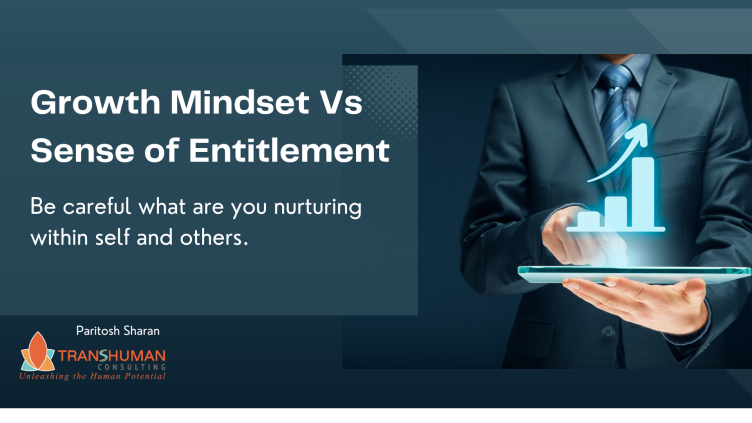
Growth Mindset Vs Sense of Entitlement. Be careful what are you nurturing within yourself and others.
The concept of entitlement has become all too familiar in our society. It is often characterized by an unrealistic expectation of privileges, status, or rewards, without any corresponding effort or merit. This mindset can have destructive consequences, not only for individuals, but also for organizations and society as a whole. In contrast, a growth mindset is characterized by a belief in the power of effort and resilience to achieve success, and can have profound positive effects on individuals and institutions.
The origins of entitlement can often be traced back to a sense of victimhood or lack of confidence in oneself. When one feels that they are owed something or that they deserve special treatment, they may be less likely to take responsibility for their own success and may become resistant to growth and change. In contrast, a growth mindset is based on the belief that one’s abilities can be developed through hard work and dedication and that challenges can be overcome through effort and resilience.
As Carol Dweck, the pioneering researcher on growth mindset, states: “In a growth mindset, challenges are exciting rather than threatening. So rather than thinking, oh, I’m going to reveal my weaknesses, you say, wow, here’s a chance to grow.” This perspective allows individuals to approach challenges with a sense of curiosity and openness, rather than fear or avoidance.
In contrast, entitlement can lead to a sense of complacency and entitlement. As Jim Rohn, a famous motivational speaker, once said: “Success is not to be pursued; it is to be attracted by the person you become.” This means that true success is not a matter of simply expecting rewards or privileges, but of becoming the kind of person who is capable of achieving great things through effort and dedication.
The impact of these mindsets can be seen in many areas of life. For example, in education, students who embrace a growth mindset are more likely to persist in the face of challenges and achieve better academic outcomes. Similarly, in business, leaders who foster a growth mindset in their teams are more likely to encourage innovation and adaptability, leading to greater success and resilience.
In conclusion, the difference between a growth mindset and a sense of entitlement is fundamental to individual and societal success. By fostering a sense of abundance and possibility, we can encourage individuals to take responsibility for their own success and to approach challenges with a sense of curiosity and openness. As Dweck states: “The view you adopt for yourself profoundly affects the way you lead your life.” Let us choose the path of growth and possibility, and strive to achieve our true potential.

